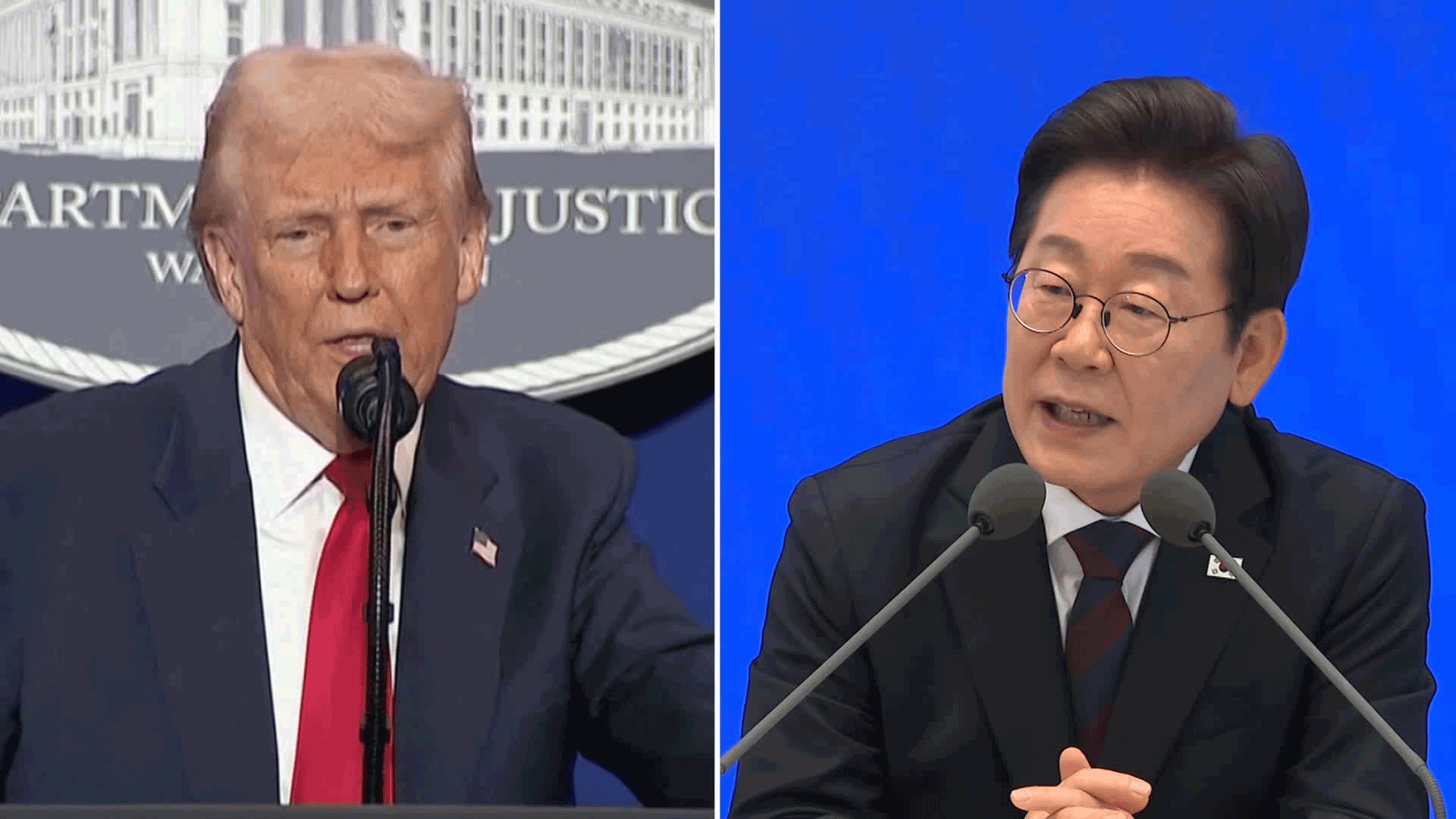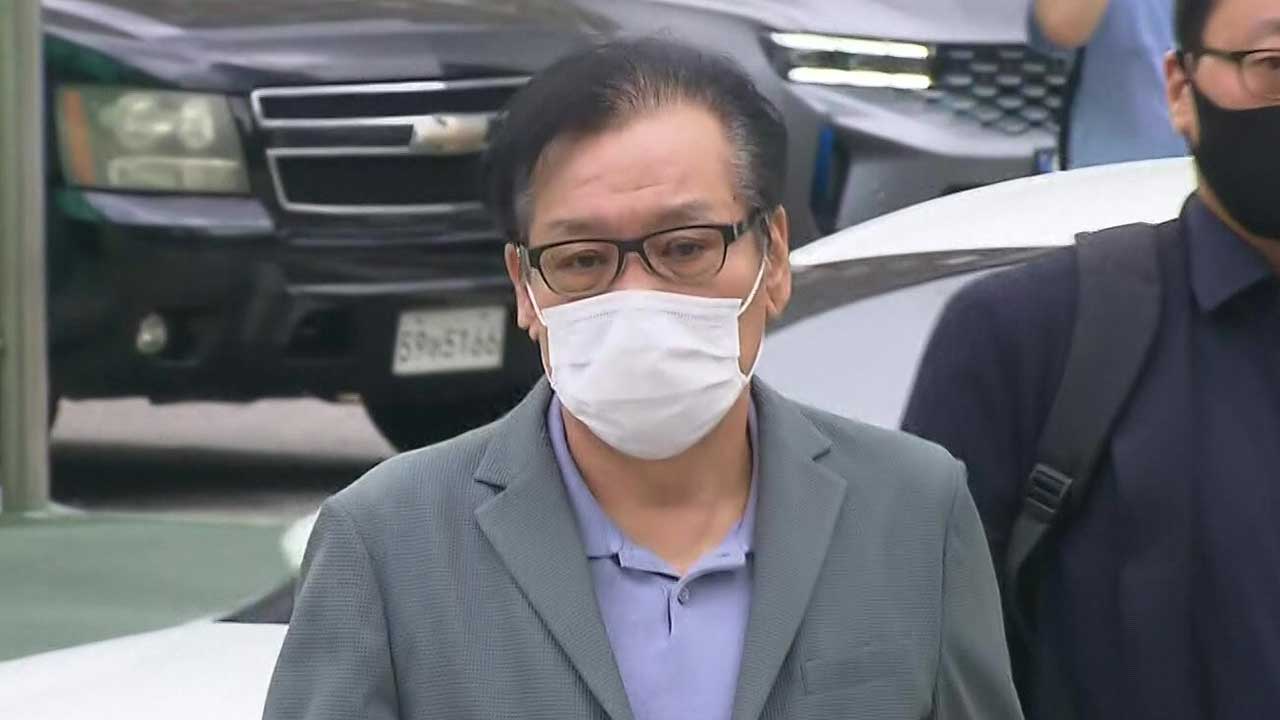[Anchor]
One of the key agenda items for the upcoming South Korea–U.S. summit is a plan for nuclear power cooperation.
Amid ongoing controversy over alleged unfair contracts between companies from both countries, the possibility of collaboration in nuclear power projects, by supporting what the other lacks, is gaining attention.
Reporter Lee Jae-hee has the details.
[Report]
South Korea has abandoned its entry into North American and European markets due to excessive royalty demands.
Korea Hydro & Nuclear Power is the contract party at the center of the secret "unfair agreement" allegations between South Korea and U.S., to which its president stated:
[Hwang Joo-ho/President of Korea Hydro & Nuclear Power/19th: "Westinghouse has no supply chain. No matter how much portion they take, they will eventually have to come to those with a supply chain to place orders..."]
This statement can be interpreted as suggesting that South Korea and the U.S. could collaborate to enter overseas markets.
Given that U.S.-based Westinghouse focuses on design and core technologies, while South Korea has strengths in construction, the two nations appear well-positioned for joint projects.
President Trump has pledged to quadruple the capacity of U.S. nuclear power facilities by 2050.
[Trump/U.S. President/May: "This is all nuclear. It's a hot industry. It's a brilliant industry. We have to do it right."]
According to the plan, about 300 additional nuclear reactors need to be constructed, but the U.S. has effectively halted new nuclear construction since the Three Mile Island accident in 1979, leading to a collapse of the supply chain.
This raises cautious speculation about South Korea's potential involvement.
[Jung Yong-hoon/Professor of Nuclear and Quantum Engineering at KAIST: "France is no more advanced than the U.S. It has been even longer since Japan has done construction. It seems that there are no other options but to partner with us."]
[Park Jong-woon/Professor of Energy and Electrical Engineering at Dongguk University: "If the business heats up, construction companies will look around, and if they decide that U.S. construction companies won't work, they might consider China or South Korea. They will likely go with the cheaper option."]
Nuclear power cooperation is also a key agenda item for this South Korea-U.S. summit.
It has been confirmed that public-private agreements related to the nuclear power industry will also be made during the summit period, with Minister of Trade, Industry and Energy Kim Jung-kwan and executives from KEPCO and Korea Hydro & Nuclear Power visiting the U.S.
This is KBS News, Lee Jae-hee.
One of the key agenda items for the upcoming South Korea–U.S. summit is a plan for nuclear power cooperation.
Amid ongoing controversy over alleged unfair contracts between companies from both countries, the possibility of collaboration in nuclear power projects, by supporting what the other lacks, is gaining attention.
Reporter Lee Jae-hee has the details.
[Report]
South Korea has abandoned its entry into North American and European markets due to excessive royalty demands.
Korea Hydro & Nuclear Power is the contract party at the center of the secret "unfair agreement" allegations between South Korea and U.S., to which its president stated:
[Hwang Joo-ho/President of Korea Hydro & Nuclear Power/19th: "Westinghouse has no supply chain. No matter how much portion they take, they will eventually have to come to those with a supply chain to place orders..."]
This statement can be interpreted as suggesting that South Korea and the U.S. could collaborate to enter overseas markets.
Given that U.S.-based Westinghouse focuses on design and core technologies, while South Korea has strengths in construction, the two nations appear well-positioned for joint projects.
President Trump has pledged to quadruple the capacity of U.S. nuclear power facilities by 2050.
[Trump/U.S. President/May: "This is all nuclear. It's a hot industry. It's a brilliant industry. We have to do it right."]
According to the plan, about 300 additional nuclear reactors need to be constructed, but the U.S. has effectively halted new nuclear construction since the Three Mile Island accident in 1979, leading to a collapse of the supply chain.
This raises cautious speculation about South Korea's potential involvement.
[Jung Yong-hoon/Professor of Nuclear and Quantum Engineering at KAIST: "France is no more advanced than the U.S. It has been even longer since Japan has done construction. It seems that there are no other options but to partner with us."]
[Park Jong-woon/Professor of Energy and Electrical Engineering at Dongguk University: "If the business heats up, construction companies will look around, and if they decide that U.S. construction companies won't work, they might consider China or South Korea. They will likely go with the cheaper option."]
Nuclear power cooperation is also a key agenda item for this South Korea-U.S. summit.
It has been confirmed that public-private agreements related to the nuclear power industry will also be made during the summit period, with Minister of Trade, Industry and Energy Kim Jung-kwan and executives from KEPCO and Korea Hydro & Nuclear Power visiting the U.S.
This is KBS News, Lee Jae-hee.
■ 제보하기
▷ 카카오톡 : 'KBS제보' 검색, 채널 추가
▷ 전화 : 02-781-1234, 4444
▷ 이메일 : kbs1234@kbs.co.kr
▷ 유튜브, 네이버, 카카오에서도 KBS뉴스를 구독해주세요!
- Korea-U.S. to discuss nuclear ties
-
- 입력 2025-08-22 00:11:14

[Anchor]
One of the key agenda items for the upcoming South Korea–U.S. summit is a plan for nuclear power cooperation.
Amid ongoing controversy over alleged unfair contracts between companies from both countries, the possibility of collaboration in nuclear power projects, by supporting what the other lacks, is gaining attention.
Reporter Lee Jae-hee has the details.
[Report]
South Korea has abandoned its entry into North American and European markets due to excessive royalty demands.
Korea Hydro & Nuclear Power is the contract party at the center of the secret "unfair agreement" allegations between South Korea and U.S., to which its president stated:
[Hwang Joo-ho/President of Korea Hydro & Nuclear Power/19th: "Westinghouse has no supply chain. No matter how much portion they take, they will eventually have to come to those with a supply chain to place orders..."]
This statement can be interpreted as suggesting that South Korea and the U.S. could collaborate to enter overseas markets.
Given that U.S.-based Westinghouse focuses on design and core technologies, while South Korea has strengths in construction, the two nations appear well-positioned for joint projects.
President Trump has pledged to quadruple the capacity of U.S. nuclear power facilities by 2050.
[Trump/U.S. President/May: "This is all nuclear. It's a hot industry. It's a brilliant industry. We have to do it right."]
According to the plan, about 300 additional nuclear reactors need to be constructed, but the U.S. has effectively halted new nuclear construction since the Three Mile Island accident in 1979, leading to a collapse of the supply chain.
This raises cautious speculation about South Korea's potential involvement.
[Jung Yong-hoon/Professor of Nuclear and Quantum Engineering at KAIST: "France is no more advanced than the U.S. It has been even longer since Japan has done construction. It seems that there are no other options but to partner with us."]
[Park Jong-woon/Professor of Energy and Electrical Engineering at Dongguk University: "If the business heats up, construction companies will look around, and if they decide that U.S. construction companies won't work, they might consider China or South Korea. They will likely go with the cheaper option."]
Nuclear power cooperation is also a key agenda item for this South Korea-U.S. summit.
It has been confirmed that public-private agreements related to the nuclear power industry will also be made during the summit period, with Minister of Trade, Industry and Energy Kim Jung-kwan and executives from KEPCO and Korea Hydro & Nuclear Power visiting the U.S.
This is KBS News, Lee Jae-hee.
One of the key agenda items for the upcoming South Korea–U.S. summit is a plan for nuclear power cooperation.
Amid ongoing controversy over alleged unfair contracts between companies from both countries, the possibility of collaboration in nuclear power projects, by supporting what the other lacks, is gaining attention.
Reporter Lee Jae-hee has the details.
[Report]
South Korea has abandoned its entry into North American and European markets due to excessive royalty demands.
Korea Hydro & Nuclear Power is the contract party at the center of the secret "unfair agreement" allegations between South Korea and U.S., to which its president stated:
[Hwang Joo-ho/President of Korea Hydro & Nuclear Power/19th: "Westinghouse has no supply chain. No matter how much portion they take, they will eventually have to come to those with a supply chain to place orders..."]
This statement can be interpreted as suggesting that South Korea and the U.S. could collaborate to enter overseas markets.
Given that U.S.-based Westinghouse focuses on design and core technologies, while South Korea has strengths in construction, the two nations appear well-positioned for joint projects.
President Trump has pledged to quadruple the capacity of U.S. nuclear power facilities by 2050.
[Trump/U.S. President/May: "This is all nuclear. It's a hot industry. It's a brilliant industry. We have to do it right."]
According to the plan, about 300 additional nuclear reactors need to be constructed, but the U.S. has effectively halted new nuclear construction since the Three Mile Island accident in 1979, leading to a collapse of the supply chain.
This raises cautious speculation about South Korea's potential involvement.
[Jung Yong-hoon/Professor of Nuclear and Quantum Engineering at KAIST: "France is no more advanced than the U.S. It has been even longer since Japan has done construction. It seems that there are no other options but to partner with us."]
[Park Jong-woon/Professor of Energy and Electrical Engineering at Dongguk University: "If the business heats up, construction companies will look around, and if they decide that U.S. construction companies won't work, they might consider China or South Korea. They will likely go with the cheaper option."]
Nuclear power cooperation is also a key agenda item for this South Korea-U.S. summit.
It has been confirmed that public-private agreements related to the nuclear power industry will also be made during the summit period, with Minister of Trade, Industry and Energy Kim Jung-kwan and executives from KEPCO and Korea Hydro & Nuclear Power visiting the U.S.
This is KBS News, Lee Jae-hee.
-
-

이재희 기자 leej@kbs.co.kr
이재희 기자의 기사 모음
-
이 기사가 좋으셨다면
-
좋아요
0
-
응원해요
0
-
후속 원해요
0













![[단독] 특검, ‘통일교 원정도박’ 증거인멸 정황 포착…‘윤핵관’ 연관성 수사](/data/layer/904/2025/08/20250821_5Rw5Ax.png)

이 기사에 대한 의견을 남겨주세요.